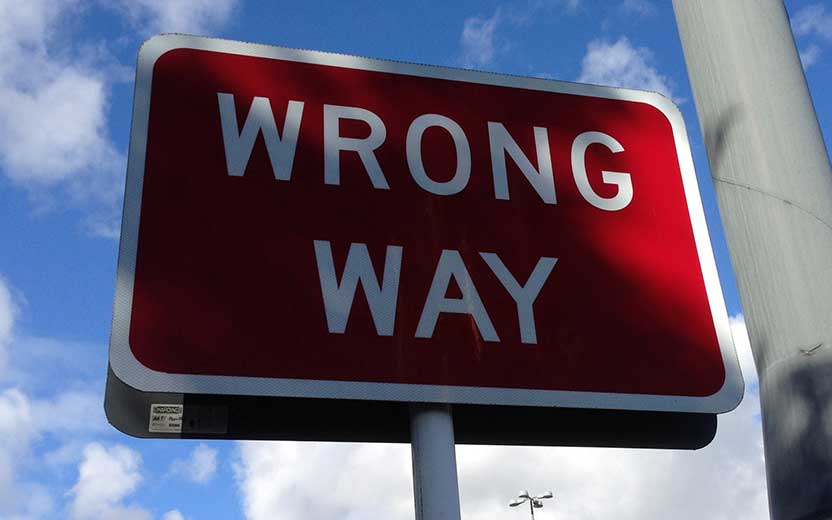By Marcus Fernandez
To answer what a loss of consortium is, let’s first define personal injury. Personal injury is the area of law concerned with compensating victims suffering physical and emotional harm. This personal harm is usually because of someone else’s negligent or intentional behavior. A car crash and a slip-and-fall accident are examples of personal injury accidents.
It may surprise you that the spouse or dependent of an injured individual may have a claim for damages. This claim is called a loss of consortium. The law in each state determines whether a claim for loss of consortium is available, who can make the claim, and the damages that may be awarded.
If you or a loved one is injured through careless or intentional conduct of another party, a claim may exist for loss of consortium. What follows is an explanation of loss of consortium claims in Florida. This article will give you a better understanding of the rights you have and how to assert them. A consultation with a Tampa personal injury attorney is the best way to learn more about loss of consortium claims.
What is a loss of consortium?
Recognition of the importance of the affection, companionship and other benefits of the relationship between spouses and, under Florida law, dependent relatives forms the basis for a loss of consortium claim. For example, if your spouse is seriously injured in a car accident you have have a claim for the following:
- Medical expenses, including the anticipated cost of future medical care.
- Lost earnings.
- Lost or diminished future earnings capacity.
- Physical pain and emotional suffering.
You also may have a claim to recover damages. The loss of consortium claim focuses on the effect of the injuries on your relationship, including:
- Impairment of the couple’s sexual relationship.
- Diminished ability to help around the house.
- Loss or diminished affection, friendship and companionship.
- Lost or diminished participation in raising children together.
Loss of consortium claims recover damages for the disruption of the relationship that you had before the accident. They consider the burden it imposed on you to take on responsibilities that you previously shared with your spouse.
Florida law and loss of consortium claims
Authorization for loss of consortium claims in Florida comes from a 1971 decision from the state supreme court. The decision recognized that depriving spouses of the companionship, affection and sexual relations creates an injury to the relationship. It went on to hold that the relationship injury is as real as the damages suffered by the injured spouse.
A limitation the court placed on loss of consortium claims was to make it a derivative cause of action. In other words, the claim by the spouse deprived of companionship is dependent on the success of the injured spouse’s claim.
What must you prove to be successful in a loss of consortium claim?
When a claim for loss of consortium is filed by a spouse or partner based on damage to the relationship the parties shared, recovering damages requires proof of the following key elements of the claim:
- Injury to one of the spouses occurred when they were married.
- The party against whom the claim for loss of consortium is made acted negligently or intentionally, which caused injuries to the claimant’s spouse.
- It was foreseeable that the wrongful conduct would cause harm to others.
- There must be evidence proving a loss of consortium due to the injuries to the other spouse.
Florida law also recognizes the right of an unmarried, dependent child to sue to recover damages for permanent loss of society, comfort, companionship, instruction, guidance, and services as a result of injuries suffered by a parent or adoptive parent through the negligence of another party.
What damages can be claimed for loss of consortium?
If you can prove that injuries to a spouse or parent harmed the relationship that you enjoyed before the accident, damages may be awarded to compensate the following harm:
- Loss of assistance raising children
- Loss of help with shopping and taking care of the household
- Loss of affection, friendship, and guidance
Compensation also may be awarded for your emotional distress and mental anguish caused by the injuries or death of your loved one caused by the negligence or wrongful conduct of the party at fault.
When an accident causes a person to die, the Florida wrongful death statute provides for surviving family members of the deceased to recover the value of the support and services they would have received from the deceased. A surviving spouse may also recover for the loss of companionship and protection of the deceased along with compensation for pain and suffering.
Minor children of a parent killed through the fault of another party may recover for the loss of the companionship, guidance and instruction of the parent in addition to recovering damages for their own pain and suffering. Parents may also recover pain and suffering damages for the death of a minor child and for the death of an adult child who had no survivors other than the parents.
A loss of consortium claim is, by its very nature, a highly personal cause of action that requires the disclosure of details about your personal life. The lawyers defending the party against whom the claim is made have the right to question you about the nature of your relationship in an effort to weaken your claim. This is why having an experienced Tampa personal injury attorney to handle the claim for you is essential.
When to hire a personal injury attorney?
If you sustain injuries through the conduct of another party, getting the compensation you deserve requires an experienced attorney. Florida limits how long you have to file a claim to recover damages. If you miss the statute of limitations, you may lose the right to obtain compensation from the at-fault party.
The statute of limitations for a personal injury and loss of consortium claim is four years. But a wrongful death claim must be filed within two years of the death. An experienced personal injury attorney knows the laws and will ensure that your claim for damages is filed on time.
A skilled Tampa personal injury attorney knows the tactics used by defense lawyers and insurance companies. A personal injury attorney is an advocate who is committed to getting you the deserved compensation.
Learn more by contacting a Tampa personal injury law firm
If you want more information about loss of consortium claims, contact KFB Law today.


